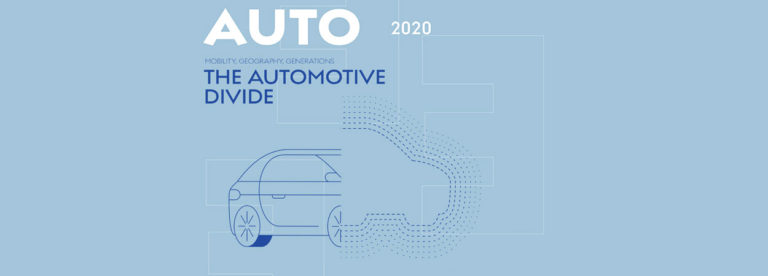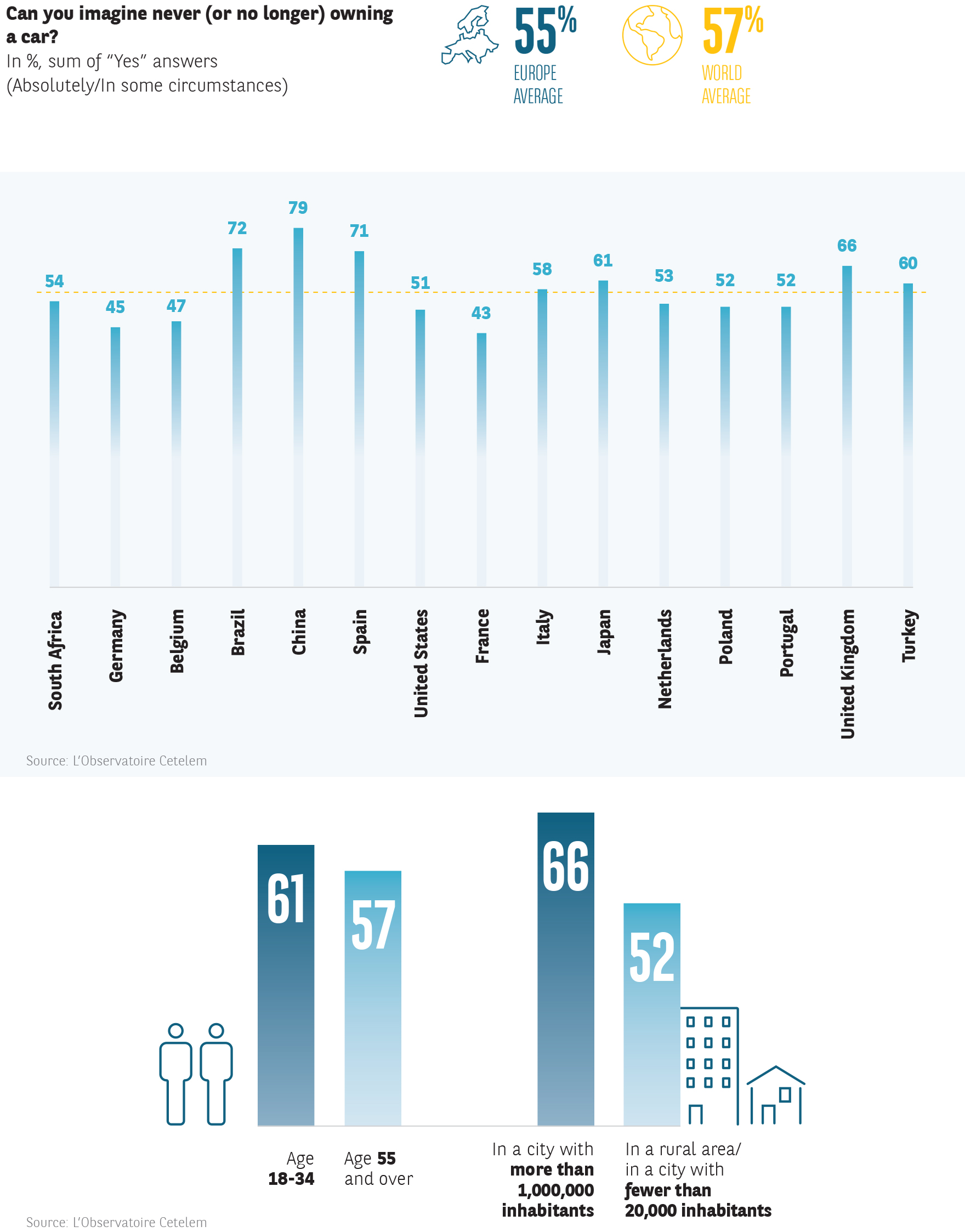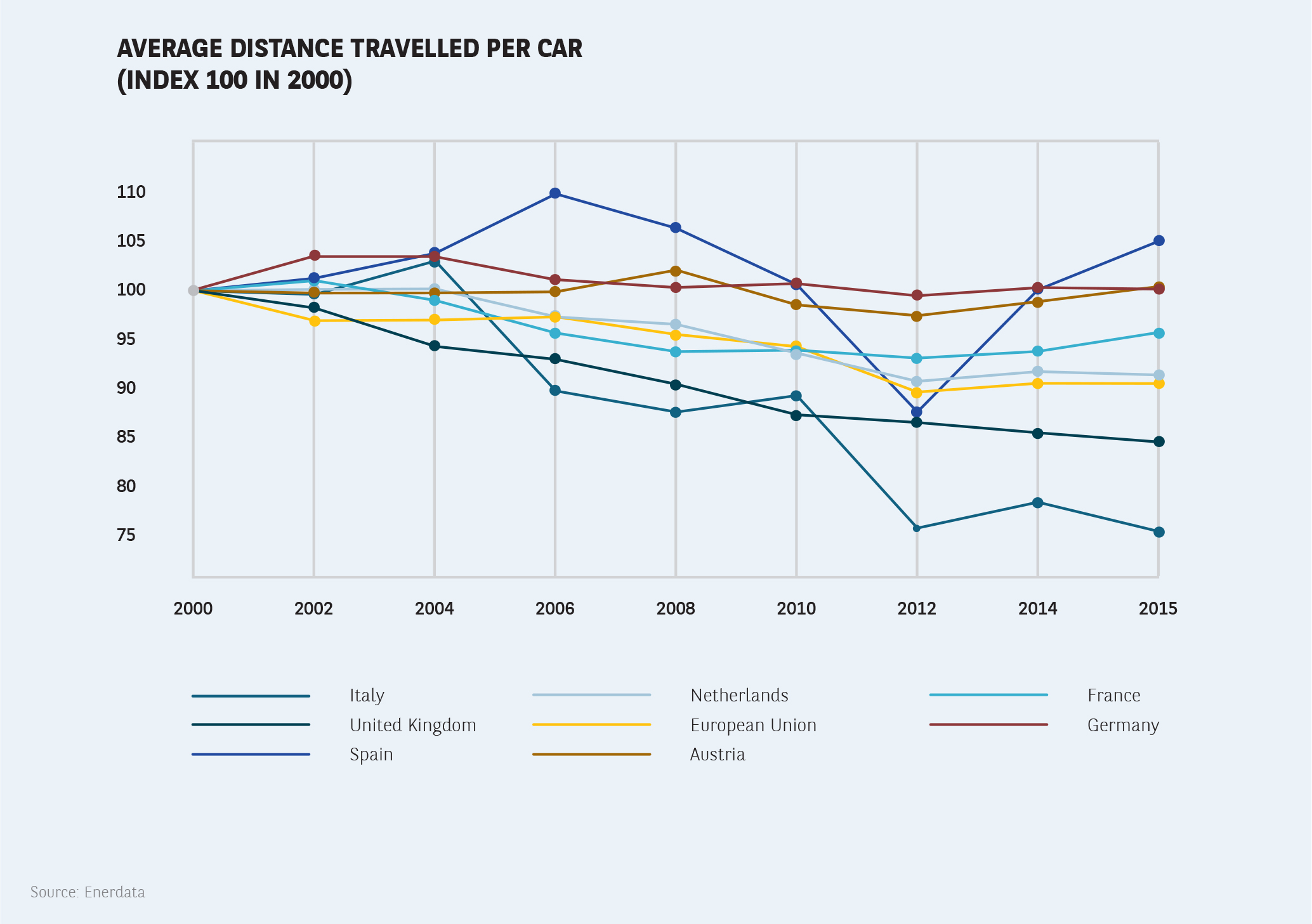Giving up on owning a car


Millennials are the least averse to considering living without a car, although there are differences between the countries. The majority of urbanites take this view.
This radical position is founded on a paradigm shift that is both ecological and economic, one that is set to trigger major schisms.
FIG. 11 et 12 :
Mileages are no longer falling
Having dropped steadily between 2000 and 2012, the distance travelled per car seems to have stabilized in many countries. It is even on the rise again in some (Spain, Austria, France). And while this increase in distances is due in part to lower fuel costs, it is nonetheless fresh evidence that cars remain essential, even if people are not prepared to own one at all costs.


